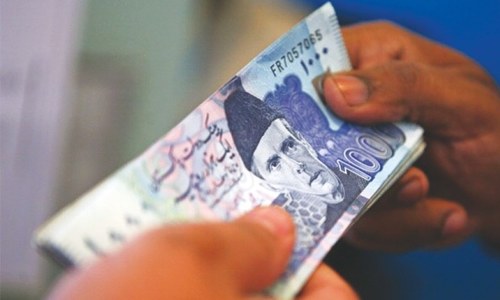Pakistan’s GDP growth to fall behind Nepal, Maldives this year: UN

ISLAMABAD: The annual Economic and Social Survey of Asia and the Pacific 2019 titled ‘Ambitions beyond Growth’, released by the United Nations Economic and Social Commission for Asia and the Pacific (ESCAP) on Thursday, forecast Pakistan’s GDP to remain lowest in the region at 4.2 per cent in 2019 and 4pc in 2020 compared to Bangladesh’s 7.3pc, India 7.5pc, Maldives and Nepal 6.5pc each in 2019.
The survey revealed that overall economic conditions in the region are stable with the projected 5-5.1 per cent GDP growth in 2019 and 2020 respectively. However, export-oriented sectors face headwinds from weaker demand in Europe and possibly in US, and looming uncertainty over ongoing US-China trade war.
Read:Pakistan's GDP growth expected to slow down to 3.9pc: ADB report
Pakistan’s economy is experiencing severe balance of payment difficulties amid large fiscal and current account deficits and mounting pressures on the currency, the report adds.
Inflation in the developing Asia-Pacific region is forecast to increase moderately in 2019 to 4.2pc before dropping to 3.8pc in 2020. However, potentially higher tariffs against the backdrop of trade tensions and rising uncertainties, currency depreciation and unfavourable weather could push up consumer and food prices.
According to the survey, the region’s medium-to-long term prospects depend on structural transformation and broad-based productivity growth. The report cautions against countries shifting from an agriculture-based economy to one in which services play a dominant role, bypassing manufacturing sector.
New frontier technologies may reduce the scope for industrialisation in “late entrant” developing countries, while high-value-added services require skilled workers. This calls for investment in people and enabling infrastructure, the survey suggests.
Stating that the next phase of structural transformation in the region must be environment-friendly, the survey illustrates that investments to speed up transition to more resource-efficient systems of production and consumption would not only reduce carbon emissions by a tenth, but deliver high economic returns and over time can reduce net financial costs to zero.
The 2019 survey points out that achieving Sustainable Development Goals by 2030 would require an annual additional investment of $1.5 trillion for Asia-Pacific developing countries — equivalent to 5pc of their combined GDP in 2018.
Despite rapid economic growth, the survey notes, too many people are left behind, without a fair chance in life, while environmental degradation has reached alarming levels, threatening the sustainability of past development gains. Hence, keeping the old paradigm of prioritising GDP growth at all costs is neither feasible nor desirable, the report argues.
Published in Dawn, April 5th, 2019












































